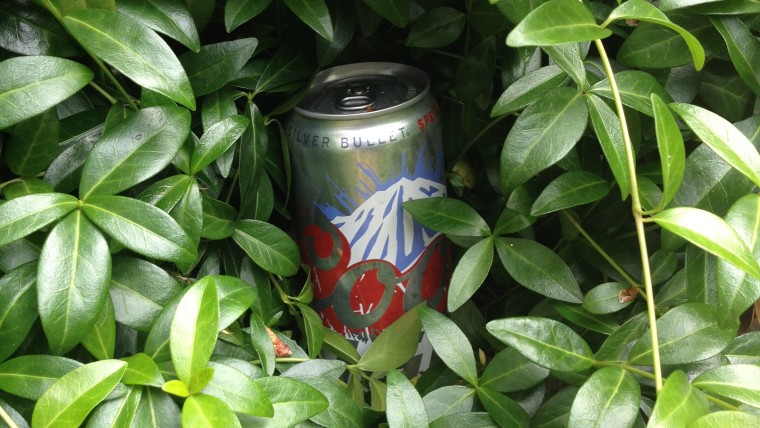“Can we have a few friends over on Friday night?”
With two high-schoolers, graduation season and summer make for plenty of reasons to party. So my husband and I field this question frequently, and always with the same answer: “Sure, but no alcohol. Absolutely none.”
Our son and daughter consistently agree, their halos shimmering. We provide them with sodas and chips, and everything seems copacetic.
But guess what: Alcohol sometimes makes an appearance anyway, as suggested by stray bottlecaps exhumed from the underside of the basement couch. And no one ever seems to know how that evidence got there.
Most of us don’t — for all the usual reasons — want our kids to drink alcohol. And add another one: Social host laws in some states apply legal responsibility to parents when underage people drink on their property — even when parents aren’t aware it’s happening. A Stanford professor learned this the hard way a couple of years ago when he found himself handcuffed and escorted to the police station following an anonymous tip about underage drinking on his property. The result? Forty-four counts of contributing to the delinquency of a minor — charges later dropped for lack of evidence of wrongdoing.
But as the stakes for parents have risen, so have the innovation and determination of teens. For every 10 fresh-faced party guests you greet at the front door, there’s one outside the basement window pushing a bottle of schnapps through the loose screen or another hiding beers in the bushes.
With the aid of industry, enterprising teens can foil even the most fastidious of parents. Unisex retailer Urban Outfitters, among others, sells tampon booze tubes that hold a shot of alcohol. (“Would you like me to put one on hold for you?” the salesgirl brightly asked me when I phoned to inquire about the availability.) There are innocent-looking fake sunscreen bottles that become conduits for booze, and “Boobie bags” add oomph to a teen’s bustline while smuggling 4 ounces of liquor into the venue of her choice — your house, maybe.
None of this surprises Vicki Hoefle, a Vermont author and parent educator. She raised five children of her own and says she’s probably seen and heard it all. “There was lots of opportunity in our house for mischief,” she says. “Sometimes we had hooligans and sometimes we had Mother Teresa among us.”
Either way, parents need to face the facts, she says, that “when teens gather, it’s always possible that alcohol will be involved.” Believing we can stop the flow is an expectation that sets everyone up for failure.
Hoefle says that for the majority of kids, experimenting with sex, drugs and alcohol is a way for them prove to themselves they’re becoming adults. “Parents need to understand this reality instead of the fairy-tale idea that we can keep all kids from drinking.”
Hoefle and her husband began to talk to their children about the risks of alcohol and drugs when they were about 7. “We tried to build up this mental muscle about how much courage it takes to hold up an agreement. We figured that if nothing else, our kids would hit the pause button in the face of opportunity and ask themselves, ‘Do I really want to do this?’ Sometimes the answer was yes, but sometimes it was enough for them to say, “It's not worth it this time.’”
Therapist Debbie Beach counsels her adolescent clients in Falls Church, Virginia, about risk-taking and impulse control — a Sisyphean task, to be sure. She admits that “trying to stop teens from drinking is like playing the arcade game Whac-A-Mole. You can lecture, explain brain science, forbid, beg, snoop, check bags, and even cry. In fact, I suggest all of these tactics when I work with parents trying to figure out how to keep their kids safe. Sometimes they work and sometimes they don’t.”
Sometimes it seems that the only remaining choice is to continue to emphasize your values and rules and the consequences for breaking them. “Then cross your fingers and say a prayer to the angels that keep them safe,” says Beach.
It's all about the planning, says Dr. Jennifer Powell-Lunder, a Westchester, N.Y., psychologist who works with tweens, teens, and young adults. Parents need to sit down with their children to discuss alcohol consumption way before the situation ever rears its head. "Start early and often — and keep them talking even when it's something you don't want to hear," she says.
Powell-Lunder helped develop the new alcohol-awareness campaign TheAlcoholTalk.com and highlights a few principles to help parents of teens grappling with the alcohol issue.
1. Look for conversation starters about alcohol. What's the buzz at school? What are the latest shenanigans involving celebrities and their drunken behavior?
2. Turn to collateral resources. Tell your teens that you have a network of their classmates' parents and that everyone is invested in keeping kids safe.
3. Model appropriate behavior. Don't have an alcohol discussion with a martini in your hand.
4. Perceived monitoring is extraordinarily effective. Your teens need to know you're on to them, that you'll be checking the premises at random times when they're entertaining friends.
5. Planning will empower your child. Emphasize that you don't permit teen drinking in your house, and that they don't have to, either. Together, figure out a system that will help them to attract their friends while repelling booze.
Alexandra Rockey Fleming is an author, journalist, and mom of two teens. She lives outside Washington, D.C.
